Graduate Students Honored by Department of Chemistry
- Associate Dean of Marketing and Communications, MCS
- 412-268-9982
Congratulations to this year's Department of Chemistry Graduate Award winners.
Graduate Student Teaching Award
The Graduate Student Teaching Award celebrates teaching assistant who have shown consistent excellence over at least four semesters, with strong teaching in labs or recitations, creative teaching methods and a commitment to inclusive practices.
Avleen Chawla
Chawla is a fifth-year Ph.D. student who has served as a teaching assistant for multiple recitation and laboratory courses. She has demonstrated exceptional consistency and impact, particularly in the first-year sequence — 09-105, 09-106 and 09-107 — earning outstanding faculty course evaluation scores across several semesters. Chawla has received praised for her clarity, patience and attentiveness to student questions, with many students noting that her thoughtful feedback helped build their confidence.
"Avleen's sessions were well-paced and supportive — she always made time for follow-ups and explained things in a way that finally clicked." — Student 09-105
Leticia Pequeno Madureira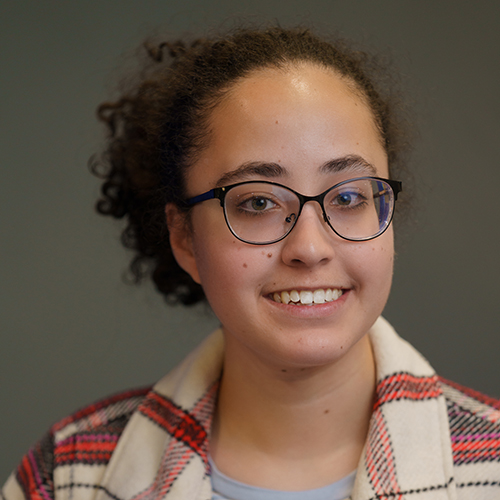
Pequeno Madureira is a rising fourth-year Ph.D. student who has served as a teaching assistant in multiple laboratory and recitation courses. In addition to bringing a warm and approachable energy to her teaching, Pequeno Madureira has shown exceptional autonomy in upper-level courses such as 09-231 and 09-322. Students consistently rate her near perfect in categories such as clarity, respect and preparedness, with repeated praise across semesters.
"Leticia was the best part of the course-her energy and clarity were unmatched and she was the reason our recitation actually made sense." — Student 09-231
Verena Kempkes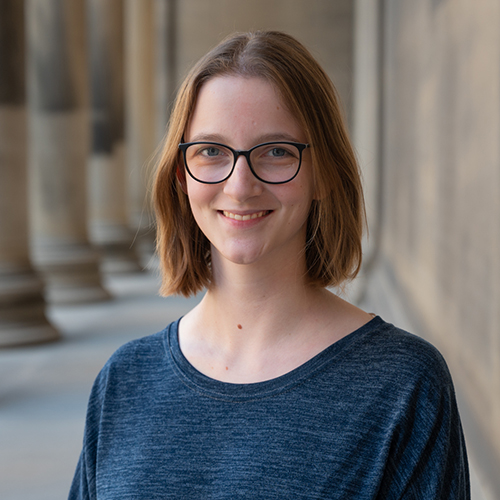
Kempkes is a rising fourth-year Ph.D. student who has primarily supported the department through her work in major laboratory courses. She contributes behind the scenes as a grader with significant impact. Laboratory faculty recognize her for the quality and consistency of her grading, as well as her exceptional attention to detail. Her written feedback is thorough, constructive and instrumental in shaping students' scientific writing. Through this work, Kempkes plays a critical role in helping students improve both their technical communication and their overall understanding of the material.
"With Verena on our team, we could truly help students grow. With her feedback, we could easily target students strengths and weaknesses and help them as analysts and communicators the foundations for good scientists." — Laboratory Instructor 09-221
Graduate Student Mentorship Award
This award recognizes graduate students who have gone above and beyond in mentoring undergraduate researchers — whether helping students complete research proposals, present at conferences or complete honors theses.
David Hebert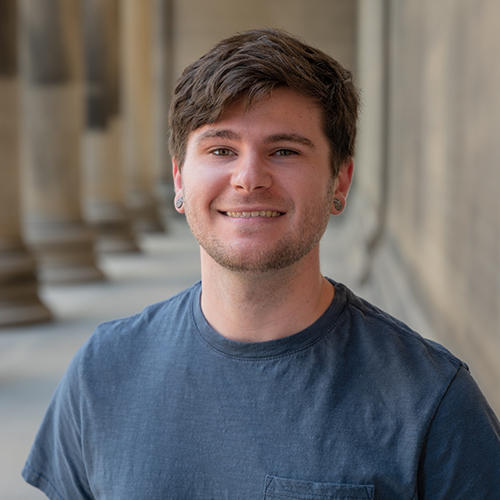
Hebert is a rising fifth year Ph.D. candidate in the Garcia-Bosch lab whose mentorship has been deeply impactful across multiple research projects in inorganic chemistry. Hebert's work centers on the synthesis and mechanistic study of copper complexes with redox-active ligands, and he actively involves undergraduate researchers in his three ongoing projects.
Through his guidance, undergraduates have gained hands-on training in anaerobic synthesis, ligand design and the mechanistic analysis of redox-active copper intermediates. Several of these students have gone on to co-author high-impact publications with Hebert, including a recent Inorganic Chemistry paper and an upcoming manuscript. Hebert is known for his versatility, collaborative spirit and commitment to mentorship well beyond his own projects. His advisor, Isaac Garcia-Bosch, praises his organizational skills and reliability.
"I can trust him with anything related to the lab and research," Garcia-Bosch said.
Undergraduate researchers echo this sentiment: "David would be my first point of contact. He would drop whatever he was doing to focus on my question, and even if it was a difficult question, he would spend time reasoning it out with me. My relatively fast output in research and publication was in part due to his willingness to spend time mentoring me, even if this project was not directly his and had no obligation to help."
Jason Orlando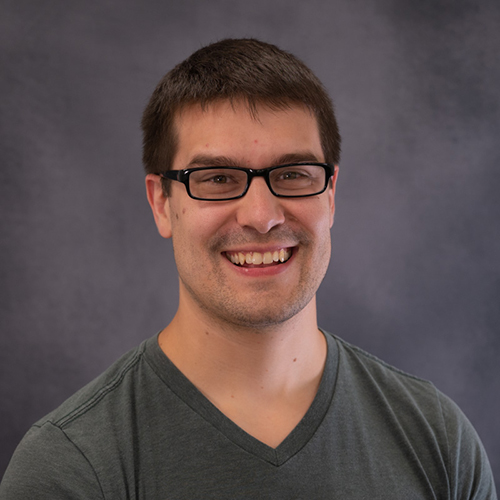
Orlando is a recent doctoral graduate from Stefanie Sydlik's group whose thoughtful, structured and deeply supportive mentorship has left a lasting impact on undergraduates he has worked with. Drawing on his background as a U.S. Army veteran and his prior master's of science in chemistry, Orlando brings a rare mix of rigor, empathy and clarity to the lab environment. He has mentored five undergraduates and students from the Honors B.S./M.S. Program in chemistry through extended projects, with all long term mentees becoming co-authors on publications. Under his guidance, mentees have co-authored on three of his first-author papers - many achieving first publications or moving on to prestigious graduate programs as a result.
Orlando is known in the Sydlik lab for being a "mother duck" (always trailed by grateful mentees) and for the clear pathways he builds for their success, complete with structured timelines and learning goals. His mentorship is not only technically grounded and productive but also deeply personal and motivational - shaping not just skills, but careers. Students praise his ability to foster independence without pressure, build confidence through positive reinforcement and support them through setbacks.
One mentee said: "Jason transformed me from a hesitant newcomer into a published researcher. I would never have made the accomplishments I achieved today without him."
Graham Thornhill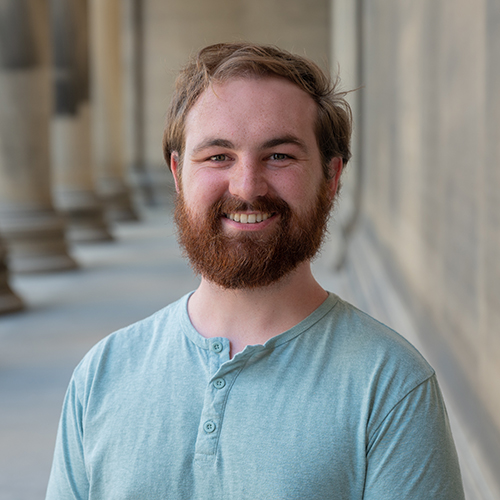
Thornhill is a rising sixth year Ph.D. candidate in the Sullivan group whose mentorship is marked by technical excellence, quiet leadership and an unwavering commitment to student growth. His ability to adapt to different students' learning styles and academic challenges has made him an indispensable presence in the lab. Thornhill has simultaneously mentored three undergraduates-a rare responsibility that he handled with patience, clarity and care. He has trained students in complex techniques such as Raman spectroscopy and optical tweezers, helping them master instrumentation, data analysis and experimental design.
Thornhill also collaborates closely with his advisor to support students beyond the bench, helping re-engage those who are struggling and holding them to standards that encourage growth. His mentorship has led to successful SURF proposals, renewed commitment to chemistry and long-term academic development for those under his guidance.
Thornhill exemplifies what it means to be both a teacher and an advocate. His steady support and technical rigor have left a lasting impact on the students lucky enough to learn from him.
One mentee said: "Instead of feeling defeated, I walked away feeling confident and motivated... Graham's mentorship made the lab feel even more like home."
Chris Birch
Birch is a rising fifth year Ph.D. candidate in the Noonan group, whose mentorship stands out for its compassion, constancy and transformative impact on both undergraduate and high school researchers. Birch has earned a reputation for being deeply present and remarkably effective, someone who builds confidence as much as they build technical skill.
Birch's mentees describe them as a calm, serious and empathetic presence who listens first, explains with clarity and creates space for learning without judgment. Whether in a lab meeting or at the fume hood, Birch brings students along in the reasoning process, grounds experiments in big-picture thinking and sets goals collaboratively.
Birch's mentorship is not only technically rigorous and effective, it is human-centered and sustaining. Their work leaves a mark far beyond the research bench. It has extended into moments of personal challenge. In one case, Birch helped a student navigate a difficult leave of absence while still keeping them engaged in research, with the student now on track to co-author a publication.
One mentee said: "Chris is not just a mentor in the lab — they are a mentor for life. Whether it's offering career advice, making connections, or simply being a shoulder to lean on, their care is unmatched."